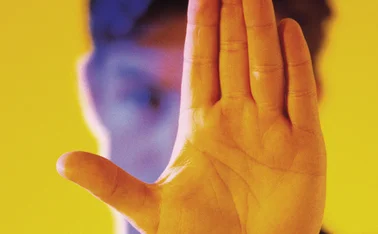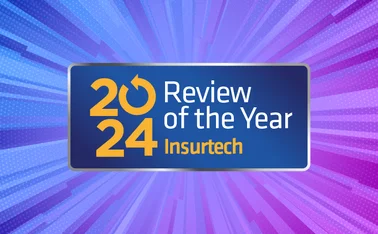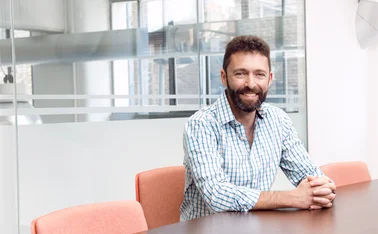
Blog: What happened to the Friends Reuniteds of the insurance .com boom?

We are currently living in an age where digital start-ups are very much in vogue.
Even in insurance, where a business like Lemonade can secure $13m (£9.2m) in first round funding despite its chosen market - peer-to-peer insurance - still being unproven.
However, the news that Friends Reunited is to close, got me thinking about what happened to the raft of insurance related online/technology start-ups from the era when this once social networking behemoth was not an online laughing stock.
Let's not forget Friends Reunited launched in the year 2000 and was bought by broadcaster ITV for £175m five years later.
So what of the early noughties insurance innovators? Here is a snapshot of some of the names that sprung to mind when I started to think about an era when Facebook, Twitter and Amazon were just a twinkle in their originator's eyes.
24 7 Broking - 2000
The brainchild of Rarrigini & Rosso, 24 7 Broking will live in infamy for a number of reasons. Not least the big splash it begun with - and the whimper with which it faded from sight.
Although I was not invited on the trip; this business was launched to the world with a junket to Iceland to which insurers, brokers and journalists were all invited. Among those who invested money were Granville Baird Capital Partners (£6m) and Friends Ivory & Sime subsidiary ISIS Capital (£3.5m).
From the feedback from my colleagues who went, it was evident everyone had a ball in the hot springs, so much so that the then CEO of the British Insurance Brokers' Association Mike Williams, seemed to endorse the venture on the way home.
So what was 24 7 Broking?
Well in short it was an online service aimed at commercial brokers, offering a suite of applications including quotations and claims reporting.
The only problem was how close to reality was the idea; especially after the launch got pushed back from January 2001, to the Biba Conference in May and then to October. And when it did go ‘live' the problem was that there were no products available. They were promised for 2002.
As one market competitor told Post at the time: "You cannot launch the complexity of what they want to launch in such a short time".
Meanwhile, the then Biba chairman George Nixon had to clarify the trade body's stance, noting: "We will not recommend any particular system to any firm because it would be inappropriate for us to do so."
He also floated the idea of a facility to enable brokers to evaluate and benchmark all of the systems on offer, something, that like a fully functional 24 7 Broking, never materialised.
The 24 7 assets were eventually sold to a Leeds-based company Go 2 IT in 2003, when THB acquired Peterborough-based Rarrigini & Rosso for £11.8m.
Inspop - 2000
Whilst I was not fortunate enough to attend the launch for 24 7 Broking, I do remember going to a press launch for online intermediary Inspop at the Gaucho Club in Soho.
The business-to-consumer site launched in July 2000 with a £7m television, radio and press campaign, looking to sell home, motor and travel insurance products. Among those on board from the beginning were CGU, Hiscox and Prudential, whilst the advert featured a very uncuddly and unlovable Terminator type figure.
The then managing director Sara Murray had big plans for the business saying it expected to enter France and Germany by the end of the year. And that it had also been approached by a company which wants to market the Inspop name in Asia.
Entreprenuer Murray was a great salesperson, as proven when she convinced the then editor of Post's sister title Professional Broking Tim Collison to put the unproven business on the cover of the monthly magazine.
Behind the scenes though, things were not going to plan, and within months of the August PB cover story John Carter, its business development manager, and CEO John Lambert had quit. As the business entered 2001 there was plenty of speculation the business needed a cash injection.
In the end Admiral snapped up the business in August 2001, with the insurer setting up up an independent operation to run the new acquisition, headed up by Kate Armstrong, formerly Admiral's head of marketing.
The fruits of that deal ultimately were the birth of Confused. Interestingly the Inspop brand still lives on today, not least in India where it provides IT and Technology support to Admiral Group's operations in different countries across the globe.
As to Murray, she won the Entrepreneur of the Year Award 2009 and an OBE for services to Entrepreneurship and Innovation in the Queen's Birthday Honours 2012.
Its4Me - 2001
Online intermediary Its4Me begun selling personal lines insurance in November 2001 and was soon selling around 2000 policies a month on the back of 60,000 quotations, with the expectation that number would increase alongside internet penetration into people's homes.
Among the innovations it heralded on its launch was an "e-chat facility", which allowed customers to exchange instant text messages with a member of the web centre team.
A sister company to high street intermediary Swinton, the business was quickly lauded, winning the Telegraph Customer Service E-Business Award for the 'best small/medium sized enterprise' and was 'best internet business' runner-up in the Microsoft Digital Britain awards. It also won a British Insurance Award.
MMA said both brands would continue to co-exist, but a quick trip to its website today reveals that it has closed, and is redirecting visitors to the Swinton website.
Rapidinsure- 2000
In 2002, the then managing director of Rapidinsure, Jon Pardoe, told Post: "It was inevitable that out of the suds of the great dot.com bubble would rise companies such as Rapidinsure.co.uk, with commercial management and a credible business plan."
Originally launched in February 2000 with Channel 5 among its backers having taken an 8% equity stake, the business was the brainchild of Darryl Mattocks, founder of the Internet Bookshop and Travelstore.com, James Spalding, an ex-project manager at manufacturer Lockheed Martin and IBM, and Richard Dunbabin, formerly at high street broker MCM.
As part of the original equity deal, Channel 5 offered Rapidinsure a one year sponsorship deal for the weather report, plus a series of adverts to coincide with relevant programmes. Channel 5 also planned to use its website to link viewers to Rapidinsure.
However, as Friends Reunited has found, broadcasters don't necessarily make the best bed fellows and Rapidinsure was forced to close shut up shop by Christmas 2000 with 3000 customers on board after attempts to raise more money fell on deaf ears.
When Berkeley Morgan rode to the rescue in 2001, its masterplan to reduce costs included reducing its online operation from 28 staff to 3, and boosting offline sales.
Today, as I write this the Rapidinsure.co.uk website is down for maintenance, but you can buy travel insurance, home insurance, and ski equipment cover on the phone.
Screen Trade/The Formula - 1997/2001
Despite an investment of £19m, Misys closed its business-to-consumer online sites Screen Trade and The Formula in 2001 with the loss of 120 jobs, having been unable to find a partner to share the cost of taking them forward.
Whilst Screentrade had been operational since 1997, The Formula was due to launch in August 2001 with a proposed £10 marketing spend. At the time the former had an annual turnover of around £1m, but Misys decided to focus on its business-to-business operations having being unable to find an investment partner.
A spokesman for Misys Interactive Trading, which operated the brands, told Post at the time over 50 prospective partners had been approached, but "not one was prepared to put in several million over the next few years."
Writing in Post, shortly after this announcement, a letter writer - who chose to withhold their name, noted: "The deadly combination of technology and insurance always meant that Screentrade and theformula.com would fail.
"Can anybody name one successful insurance initiative for selling online. And don't mention Direct Line - that is telephone-based.
"There aren't any and the arrogance of Misys is overwhelming. Sorry for those that lost their jobs but it was inevitable - stop punting products and find out what the customer wants - that's the real message for the insurance industry."
Misys did manage to recoup a small amount of money when it sold the Screen Trade book to Swinton; whilst the brand name and internet domain names were bought by Lloyds TSB Insurance Services.
Today, Screen Trade is owned by Devitt after the broker acquired the domain in 2011 and relaunched it in 2014, making the brand - the self proclaimed "first online insurance broker / comparison site" - at least a survivor.
It will be interesting to see who out of the current crop of digital insurance start-ups manages to match it and still be around in 15 years time.
Only users who have a paid subscription or are part of a corporate subscription are able to print or copy content.
To access these options, along with all other subscription benefits, please contact info@postonline.co.uk or view our subscription options here: http://subscriptions.postonline.co.uk/subscribe
You are currently unable to print this content. Please contact info@postonline.co.uk to find out more.
You are currently unable to copy this content. Please contact info@postonline.co.uk to find out more.
Copyright Infopro Digital Limited. All rights reserved.
As outlined in our terms and conditions, https://www.infopro-digital.com/terms-and-conditions/subscriptions/ (point 2.4), printing is limited to a single copy.
If you would like to purchase additional rights please email info@postonline.co.uk
Copyright Infopro Digital Limited. All rights reserved.
You may share this content using our article tools. As outlined in our terms and conditions, https://www.infopro-digital.com/terms-and-conditions/subscriptions/ (clause 2.4), an Authorised User may only make one copy of the materials for their own personal use. You must also comply with the restrictions in clause 2.5.
If you would like to purchase additional rights please email info@postonline.co.uk








